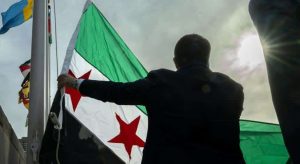“As an intergovernmental organization mandated to develop and implement space programs with full respect for European values, we deeply deplore the loss of human lives and the tragic consequences of the aggression against Ukraine,” the European Space Agency (ESA) stated today in a press release.
“We acknowledge the impact on space scientific exploration, but ESA fully aligns with the sanctions imposed on Russia by its Member States,” the entity added. After evaluating the situation resulting from the war in Ukraine, ESA has recognized the current impossibility of continuing cooperation with the Russian agency Roscosmos in relation to the ExoMars mission.
The ESA’s board of directors, meeting in Paris on March 16 and 17, analyzed the consequences of the invasion of Ukraine by the government of Vladimir Putin, unanimously concluding the infeasibility of maintaining collaboration with Roscosmos on the ExoMars mission. The launch of the Rosalind Franklin rover, scheduled for September, aimed to search for signs of life on Mars.
As a result, the ESA Director General, Josef Aschbacher, has been tasked with taking the necessary measures to suspend cooperation activities related to the ExoMars project. In addition, he has been authorized to conduct an accelerated industrial study to explore alternative options to carry out the rover’s mission to the red planet.
In addition to the suspension of the ExoMars mission, Roscosmos’s decision to withdraw its personnel from the European spaceport in French Guiana has led to the suspension of all planned missions with Russian Soyuz spacecraft. This measure affects four institutional missions related to launch services acquired by ESA (Galileo M10, Galileo M11, Euclid, and EarthCare), as well as an additional institutional launch.
In response to this situation, Aschbacher has begun evaluating possible alternative launch services for these missions. This review will include an assessment of the initial exploitation flights of the Ariane 6, in order to present Member States with a launch manifest covering the needs of ESA missions, including those originally planned for launch with Soyuz rockets from Kourou, French Guiana.
Regarding the International Space Station (ISS) program, international collaboration continues without significant changes. The main priority remains to maintain the safe operations of the station, including the safety of the crew.
Based on an initial analysis of the technical and programmatic implications of the war in Ukraine on other affected space activities, the ESA Director General intends to convene an extraordinary council session in the coming weeks. Specific proposals will be presented at this meeting for Member States to make informed decisions about the future of European space missions.
Source: MiMub in Spanish












